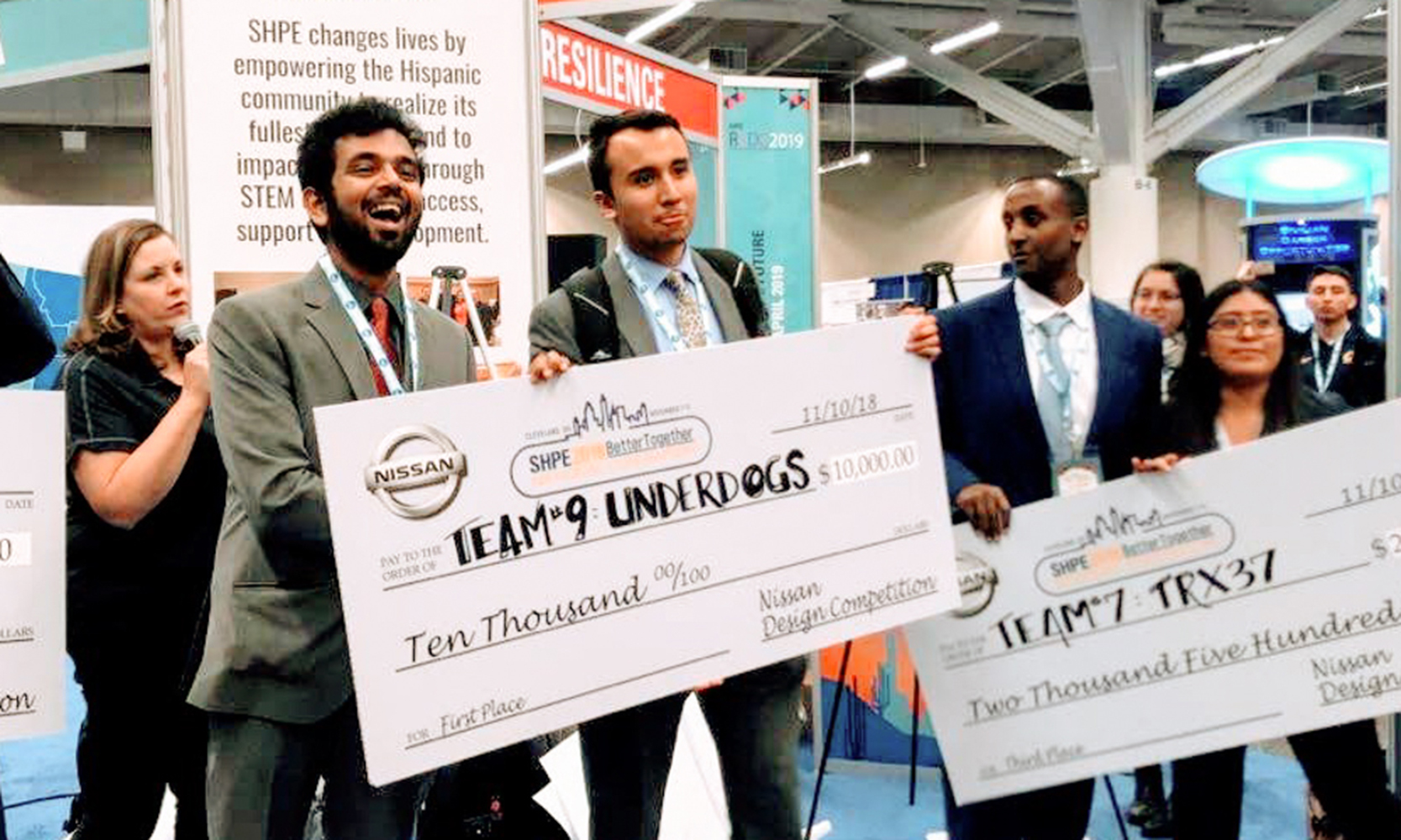
At any number of stages of this year’s Nissan Design Competition, you probably wouldn’t have put your money on Priyal Sheth to win it all. In fact, with just two weeks to go until the annual pitch event focused on automotive innovations, it didn’t look like Sheth would even be competing. When he wrote the organizers just to confirm his hunch that he wasn’t one of the 24 selected from more than 3,000 applicants, he got back a short message making it official.
But then, the very next day, he got an unexpected follow-up. It turned out, Sheth’s name was on the list, which featured competitors from top universities including Texas A&M, University of California-Berkeley and the University of Maryland; but it came with the mixed-blessing distinction of being one of three alternates. That meant he could attend, but he’d be riding the bench for the actual competition — unless someone dropped out before or during the event. And as things were wrapping up on the second day of competition, it didn’t look like that was going to happen.
“Then around 4 o’clock, I got a text from one of the organizers saying they would make a ninth team of just the alternates,” Sheth explained. “So we got right to work. All the other teams had been working on their pitches for almost two days — plus two weeks prior to the competition. The end-of-day presentations were at 6 o’clock — so we literally had two hours to come up with an idea or we’d be disqualified.”
Sheth said his team’s oral presentation was “completely impromptu,” accompanied only by a few hastily fashioned bare bones slides. They didn’t even have a free moment to choose a team name, and when the judges asked, they spontaneously and appropriately chose The Underdogs. Sheth said that first critique session was pretty rough, but their idea for redesigning the air intake system to reduce a vehicle’s carbon emissions was intriguing enough that they survived to compete on the third day. After that day’s presentations, three teams would move on to compete in a final round.
It was after that round’s scathing critique from the judges, though, that Sheth figured it was all over for them.
“After our presentation, we were just walking out of the room because we didn’t plan on staying for them to announce the finalists. I was actually looking forward to getting some sleep because it had been so crazy,” he said. “One of the judges saw us, though, and they were, like, ‘No, come back!’ Then, they read our names. We were completely shocked.”
With a third-place tie, four teams advanced to the final round. And rather than travel all the way back to his hotel, Sheth and his only remaining teammate (their third had dropped out after the previous round) found a quiet corner in the conference center’s adjacent hotel and worked through the night. But by 6 a.m., instead of having a winning presentation, they were on the verge of a complete meltdown.
“We were totally sleep deprived and my teammate, Angel, was really stressed out. We were fighting, and it looked like everything was going to fall apart. So I took a step back, readjusted my tone and tried to establish some ground rules so we were actually listening to each other. We went back to just the basics. We focused just on what the judges’ critiques had been rather than trying to introduce too many new ideas. They say executives have the attention span of babies, so you have to get to the point.”
Grabbing a quick breakfast at 7:45 a.m., they headed in for their final presentation. It was short on fancy graphics, but solid on substance. A few hours later, the winners were announced, starting with the third place finisher, then second place. At that point — even making it as far as they had — Sheth said he actually felt disappointed. He didn’t want to finish last among the finalists, and he thought there was no way they were taking first.
But when the winner was announced, it was The Underdogs who’d come off the bench to win the whole thing.
Because their team had shrunk to two, Sheth took home half of the $10,000 grand prize. (The win also comes with an opportunity for an internship with Nissan.) Sheth resisted pleas from his friends to spend it on them and did the responsible thing: After receiving the check, he promptly made a $5,000 dent in his student loan debt.
“But before I did, I took a screenshot of my bank account,” he said, laughing. “I wanted to remember the one day I had so much money.”





